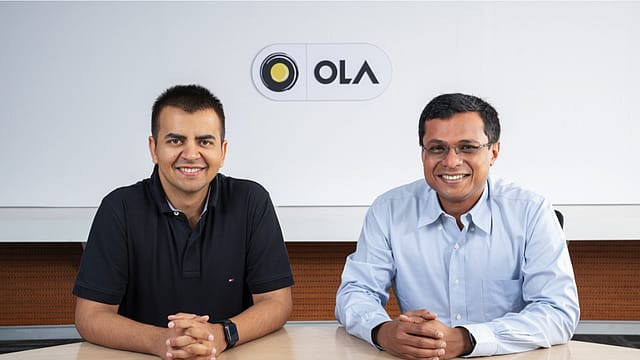Sachin Bansal rides in Ola, as Swiggy looks to gulp Uber Eats
ADVERTISEMENT

It was an eventful past two weeks for Bengaluru’s buzzing entrepreneurial ecosystem as the city’s two unicorns—Ola and Swiggy—made headlines with its fund raise and acquisition talks. Unicorns are startups with a valuation of more than $1 billion.
Earlier this week, cab-hailing service Ola raised ₹650 crore from Flipkart co-founder Sachin Bansal, the largest investment by an individual in Ola till date. And word on the street is that Swiggy—India’s largest food-tech firm—is in talks to acquire Uber Eats, the food delivering arm of ride-sharing giant Uber.
According to multiple media reports, the talks are in an advanced stage and the transaction could close as early as next month. The deal is expected to be a share swap, which will give Uber 10% stake in Swiggy, which was valued at $3.3 billion in its latest round of funding, reports said
“We do not comment on market rumours or speculation,” a Swiggy spokeswomen replied in response to an email sent by Fortune India on the transaction.
If Swiggy can crack the deal, it will be its largest acquisition till date. Currently, Swiggy delivers about 28 million orders per month across the food delivery segment, while Uber Eats delivers 9 million orders monthly. Combined, it would make Swiggy a formidable, monopolistic player in the space.
Flush with funds, last month Swiggy acquired Kint.io, a Bengaluru-based artificial intelligence startup, for an undisclosed amount. Last year, it had acquired Scootsy, a Mumbai-based on-demand delivery firm, in an all-cash deal pegged at around Rs 50 crore. Its other acquisitions include gourmet food startup 48East and milk delivery service Supr Daily.
That's not all though. Swiggy is in expansion mode, adding new services to its cart. Last week the food-delivery app launched Swiggy Stores, offering doorstep delivery of daily essentials such as groceries from both online and offline stores, fruit and vegetables, and healthcare products in less than an hour. The new service will be a part of Swiggy’s existing mobile app. At present it has about 125,000 active delivery partners.
Experts say it is a natural expansion strategy as Swiggy will be serving the same customer base. Besides competing with Google-backed hyperlocal delivery startup Dunzo, Bengaluru-based Swiggy will be competing with online grocery stores such as BigBasket and Grofers and e-commerce giants Amazon India and Flipkart, who also deliver groceries. Swiggy Stores has been launched in Gurugram for the time being. It will deliver products from over 3,500 stores.
Over the past decade, Bengaluru has built a thriving culture of startups, angel investors and venture capitalists, who have consistently contributed to the growing entrepreneurial spirit of the city.
The biggest example of that are Flipkart co-founders Sachin Bansal and Binny Bansal (who aren’t related). Together they built India’s largest e-commerce company. Not just that, last year they sold Flipkart to U.S. retail giant Walmart for a whopping $16 billion. And Sachin Bansal is said to have exited Flipkart by selling his stake in the company for a reportedly $1 billion. Binny Bansal is also said to have made a fortune of about $1 billion, according to a Bloomberg report dated May 2018.
Sachin Bansal’s investment in Ola is part of the cab service provider’s larger Series J funding round and is in Bansal’s personal capacity as an investor. Ola’s fund raise comes at a time when the company is aggressively working towards substantiating its lead against rival Uber Technologies in the domestic market and ramping up its presence in overseas markets to create a worldwide cab-hailing service. It is also building a food delivery business where it competes with companies like Zomato, Uber Eats, and Swiggy.
While the endgame is still unknown, there’s surely a lot to ride on and munch.